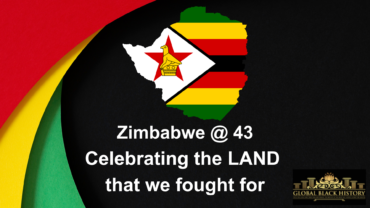Zimbabwe after 43 years of independence has achieved what the freedom fighters fought for. Thousands of young men and women fought in the bitter almost 20 years battle against the occupying force known as the Rhodesians. The Rhodesians came from England and occupied the land for 90 years. The battle for Zimbabwe was the longest battle ever fought for African independence. The people of Zimbabwe primarily fought for LAND, not personal freedom, not for political power, not the right to vote but for LAND. In reality, the land reform program fulfills the reason why black Zimbabweans fought for independence which came in 1980.
Fast forward to 2022, while other African countries were begging for Russian wheat Zimbabwe was self-sufficient with a surplus for export. Wheat is Zimbabwe’s most important strategic crop after corn. Even in the 4th industrial revolution food security is a top priority and a matter of national security. Other African countries which have not focused on land, are at the mercy of the aftermath of the Russia- Ukraine war, and that’s a shame. This year, Zimbabwe is expected to have a record harvest in wheat, because of the successful implementation of land reform and the Targeted Command Agriculture program.
“We are most likely to get the highest tonnage since 1962, when wheat was first introduced to Zimbabwe. A lot of countries are facing shortages, but the opposite is happening in Zimbabwe. harvest 380,000 tons of wheat, “which is 20,000 more than we require as a country” – Deputy Agriculture Minister Vangelis Haritatos told The Associated Press
How did Zimbabwe Become The Bread Basket of Africa Again?
- Zimbabwe’s small-scale farmers are working together in economic groups known as a clusters to benefit from economies of scale
- Land used for growing wheat increased from 66,000 hectares (163,089 acres) in 2021 to 75,000 hectares.
- The government implemented the Targeted Command Agriculture Program (TCAP), commonly known as Command Agriculture, is contract-farming scheme enlisting both the peasantries and the new small-scale capitalist farms, with funding support from domestic capital (Mazwi et al., 2019) and has provided much needed capital to black farmers.
- Most wheat farmers are using combine harvesters to harvest wheat quicker to prevent bushfire damage
The journey to restoring black farmers to their land in Zimbabwe has been long and arduous. The Land Apportionment Act of 1930 robbed Africans of the most productive farmland and it was only until 2000, that some farmers began to recover the stolen property. Some white farmers chose to leave Zimbabwe with their expertise and capital to neighboring Zambia and South Africa. For many years, it seemed the land reform program was not wroking as small black farmers struggled to raise the necessary capital required each year. With the introduction of hte revised ‘Command Agriculture’ program’ backed by government and private funding, output has drastically increased in the last few years.
As Zimbabwe celebrates 43 years of independence, it is worth celebrating that indeed the citizens of Zimbabwe have what they fought for, their LAND.




